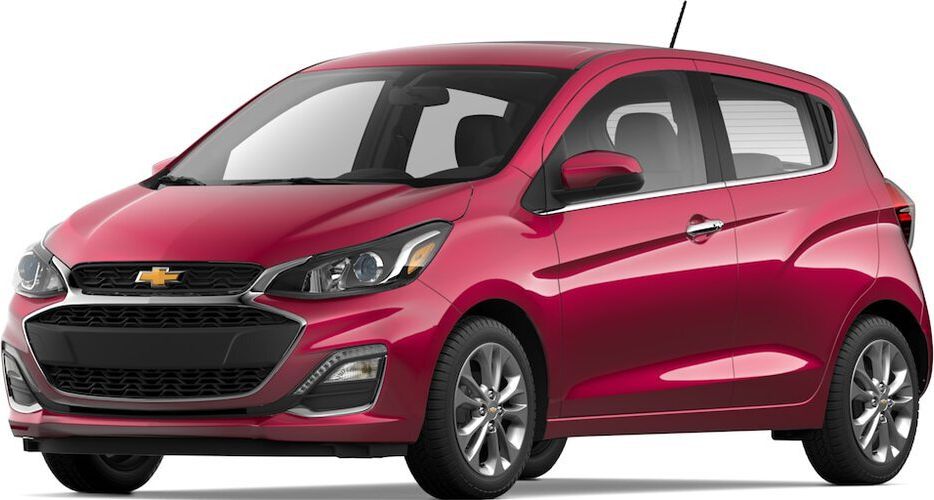
The used car market can be a daunting labyrinth for consumers looking for their next reliable ride. It's no wonder that finding the right used car at the right price can often feel like a Herculean feat. Yet, the journey through this market can be rewarding and fruitful.
Here is your guide to navigating the twists and turns of the used car marketplace. Ensuring you find a dependable vehicle at a price you can afford.
Read on to learn more.
Set Your Budget and Financing in Advance
Before you even set foot in the marketplace, you must know how much you can spend. Establish a clear budget that considers the greatest you can afford. Factoring in the:
- sale price
- sales tax
- registration
- insurance
- maintenance
- registration fees
Don't rely on financing offered by the dealership. Find options from your bank, credit union, or online lenders to secure the best rates. Doing your due diligence beforehand gives you a firm financial foundation from which to negotiate with sellers.
Understand Your Needs and Wants
Define your needs versus your wants. Create a checklist of non-negotiable features like size, fuel efficiency, or safety ratings. Be willing to compromise on features that don't impact the car's functionality but may affect the asking price, like color or entertainment systems.
This clarity will help you narrow your search. It also ensures that the car you end up with aligns with your practical requirements and financial restrictions.
Shop Around Multiple Marketplaces
Diversify your search by browsing multiple used car marketplaces. This is from online classifieds to car auctions and local dealerships to private sellers. Each venue offers unique advantages and potential deals.
Online platforms can provide many car options, while local auctions might score you a real bargain. Look for those hidden gems, but always exercise caution and verify the vehicle's history and the seller's reputation.
Research and Inspect the Car's History
A car's history report is a goldmine of information. Request the VIN (Vehicle Identification Number) from sellers, which allows you to access the car's history through services like Carfax or AutoCheck. Look for red flags like previous accidents, title issues, or recurring maintenance problems.
Additionally, always have a trusted mechanic inspect the car before you commit to a purchase. They can identify issues that may not be apparent visually and provide a more accurate picture of the car's condition.
Test Drive Like a Pro
The test drive lets you get a feel for the car and ensures everything works. Pay attention to how it accelerates, brakes, and handles. Check all electronic systems, such as the radio, air conditioning, and on-board computer.
Use the test drive to listen for unusual sounds and note strange odors. Also, ensure no warning lights are on the dashboard and that the car runs in various conditions.
Negotiate with Confidence
Being informed is your greatest asset when negotiating the price. Armed with the research from your car history report and inspection, you can use any issues identified to your advantage when negotiating a lower price or be more confident about what you're getting for the agreed-upon amount.
Don't be afraid to leave a deal that doesn't feel right, and always be prepared to negotiate. Remember, the initial price is rarely the final price in the used car market.
Document the Sale Properly
Ensure all necessary documentation is in order before completing the sale. This includes the title, bill of sale, warranties, and maintenance records. Ensure all details are accurate, and consider having a legal professional review the paperwork, especially if you're buying from a private seller.
Proper documentation protects you as the buyer and ensures that the transfer of ownership is official and legal.
Finalize Your Registration and Insurance
Once the sale is complete, finalizing your registration and insurance for your new ride is the most exciting part. Contact your local DMV to find out what documentation is required, and then secure insurance coverage before driving your new (to you) car off the lot.
You can swiftly transition to enjoying your new vehicle without any legal hiccups by proactively managing these tasks.
Consider the Timing of Your Purchase
Timing can greatly affect the deals available in the used car market. Dealerships often have quotas to meet at the end of the month, quarter, or year and may offer better deals to clear inventory. Similarly, shopping during weekday mornings can provide more negotiating leverage as there is typically less customer traffic.
Be mindful of seasonal factors, too; 4WD and AWD vehicles may be in higher demand and pricier during winter. Conversely, convertibles might be cheaper in the fall and winter when fewer people are looking to buy a car for summer driving.
Be Wary of High-Pressure Sales Tactics
Let your research and intuition guide your purchase, not the pressure from a seller. High-pressure tactics can lead to hasty decisions and regrettable purchases. Keep a clear head and stick to your budget and checklist. If you feel uncomfortable or pushed towards a decision, it's okay to take a step back, reassess, or look elsewhere.
Review Warranty and Return Policies
Inquire about the warranty and return policies on the affordable used vehicles you're considering. Some dealerships offer certified pre-owned vehicles with warranty coverage, which can provide additional peace of mind.
However, understand what is covered under the warranty and for how long. If purchasing from a private seller, be aware that the car will likely come "as is" without any warranty.
Be Prepared for Future Maintenance
Finally, factor in the future maintenance costs for the vehicle you are interested in. Check for any upcoming service milestones that could necessitate expensive maintenance soon after purchase.
Make sure you're comfortable with the potential cost and have a reliable mechanic who can perform the work for a reasonable price.
When considering a used car, the Chrysler Voyager often presents itself as an economical and family-friendly option. It's a vehicle that has balanced the need for passenger space with the demand for cost efficiency.
Follow These Tips on Navigating the Used Car Market
In summary, the used car market is a vast landscape that requires patience, knowledge, and a proactive approach to navigate successfully. With these tips, you're now equipped to go out and find not just any car but the right car for you. Remember, diligence in research, inspection, and negotiation will save you money and give you peace of mind as you cruise in your new set of wheels.
For more helpful tips, check out the rest of our site today!




